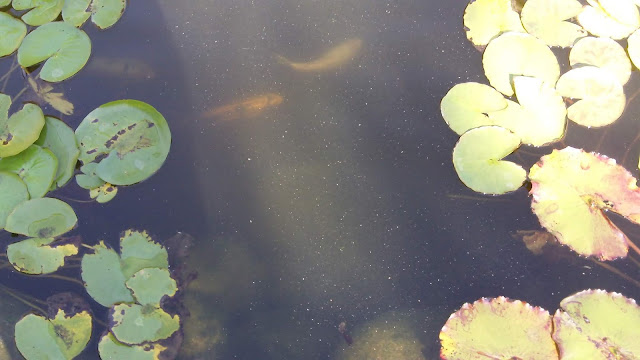Preparing Fish for Winter with Food
When the fall season arrives, your first duty to your fish is to watch the water temperature.
When the water starts to get colder in the fall, fish
metabolism slows down. It slows down so much that when you look at them in the winter it may seem as if they are sleeping! Well, they are kind of sleeping.
There are two important temperatures you need to remember -- 65 degrees and 55 degrees.
Feed your fish low temp food when the water temperature drops to 65°F.
We can help fish prepare for their deep sleep of winter. Feeding them a low temp fish food in the fall gives them some supplemental energy.
Plus with a lower protein level, it’s easier for the fish to digest quickly. Low temp fish food also helps
give your fish a little more bulk to battle the winter. Low temp food is a great way
to start feeding your fish in the spring too (by spring I mean water
temperature is sustained above 55°F).
But don't be tempted to overfeed with low temp food! We still want to limit the waste in the pond. And if you’ve ever paid attention to any of our advice, you know that more waste means more algae! Feed them a few times a week, no more than what they will eat in a minute or two.
IMPORTANT: Stop feeding your fish when the water temperature falls below 55°F.
Once the water temperature falls to 55 degrees, you should stop feeding your fish for the year. Their metabolism has slowed down so much that they don't need to eat. If they warm up enough to eat during the winter, believe me they will find something to nibble on. This is extremely important. Fish kills in the spring are often due to fish being fed too late in the season or during the winter.
A side note about temperature:
there’s a big difference between air temperature and water temperature. Make
sure you’re measuring the water temperature itself with a floating thermometer.
So what if I never feed my fish?
If you are not in the practice of feeding your fish, don't worry about starting now. Your fish have become accustomed to finding their own food and they will be just fine. Plus, they know when to eat and when to stop!





Comments